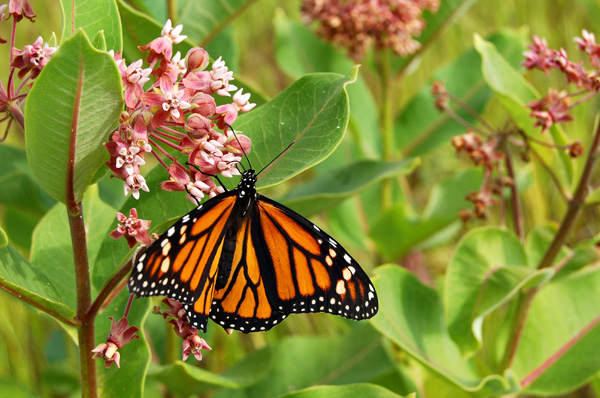- South Texas Students Meet Accordion Music Icons Los Tigres Del Norte In Edinburg Thanks To Khs America/Hohner Alianza Académica Initiative
- Fragile Planet Offers a Nighttime Wildlife Experience
- Falcons Soccer Off & Running
- Cameron County Receives Funds to Improve Two Parks
- Falcons Complete First Half of 32-6A
- School District to Help out Victims of California Wildfires
- Sand Castle Days Continued Despite Unexpected Weather
- Ready for District
- Discussion of Garbage Dumpster Rates, Agreements Between State & City on Highway Regulations, and More
- 31st Annual Shrimp Cook-Off is Right Around the Corner
Bicycle Seed-Bomb Event Launches for Butterflies and Bees
- Updated: November 13, 2015
by Eric Galatas
AUSTIN, Texas – A group of volunteers in Fort Worth is hoping a bike ride can help spark a grassroots movement to save the butterflies, bees and other pollinators that play a critical role in the nation’s food chain.
Jillian Jordan, the Great Seed Bomb event’s founder, said bees alone contribute more than $15 billion to U.S. crop production. She noted that there were 6 million beehives at work in 1947, but today – after a 123 percent increase in the nation’s population – there are only 2.5 million hives remaining.
“We’re counting on 60 percent less bees than ever before. That’s a troubling fact,” she said. “We’re tired of watching it on the news and just being scared about it. Instead of just watching it happen, we wanted to do something about it.”

Fort Worth community organizations, volunteers and environmentalists are launching a pilot project to help pollinators essential to the nation’s food supply. Photo: Cmackenz/iStockphoto
This weekend, Jordan and other volunteers will make “seed bombs,” a combination of native plant seeds, fertilizer and a protective shell. Jordan said each bomb can fit in the palm of your hand, making it easy to toss from your bicycle. After it rains, she said, the seeds have everything they need to blossom into plants that pollinators love but that have been missing in developed urban areas.
On Nov. 14, participants will get on their bikes and cluster-bomb parks, trails and open spaces. Jordan said the wildflowers and milkweed plants – a favorite of the monarch butterfly and its offspring – that take root and grow can provide critical nutrients for migratory insects. Jordan said 90 percent of monarchs already have disappeared, largely because of the use of insecticides such as Roundup. She said she’s hopeful that creating milkweed pit stops along their flight path to Canada will help more butterflies make the trip back.
“Texas is crucial,” she said. “We’re the first thing that the monarchs see, coming out of Mexico. They start their journey, why not make that first stop a really strong one for them? We’ve got lots of trails, so why don’t we utilize those to provide for the monarch?”
Great Seed Bomb proceeds will benefit local nonprofit organizations to help keep conservation efforts going. If the group’s first outing is a success, Jordan said, she’ll work to help other seed-bomb events sprout up across the country.
More information is online at greatseedbomb.org.
